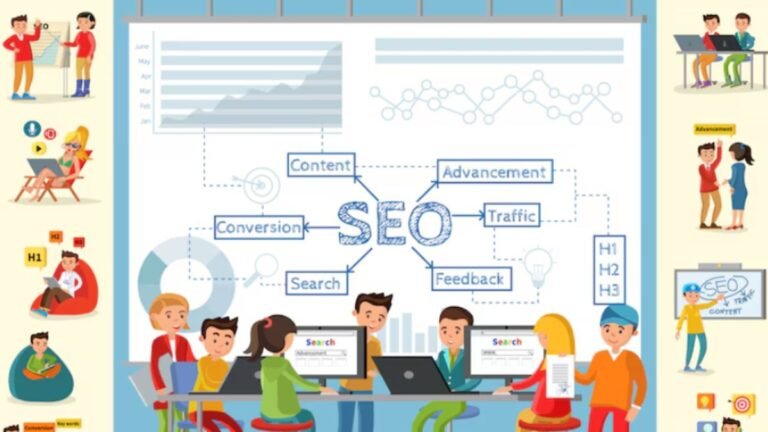Table of Contents
- Why Agencies Are Turning to White Label SEO
- Current Trends Shaping White Label SEO
- Essential Tools and Technologies
- How White Label SEO Streamlines Agency Workflows
- Best Practices for Managing Client Campaigns
- Real-World Challenges and Solutions Agencies Face
- What’s Next for White Label SEO?
- Conclusion
Why Agencies Are Turning to White Label SEO
As digital marketing becomes more complex and competitive, agencies leverage SEO white label services to expand their reach and tap into expertise without hiring large in-house SEO teams. These partnerships allow agencies to deliver technical SEO, content marketing, and link-building solutions under their own brand, allowing them to focus on client relationships and business development. At the same time, experts manage the intricate mechanics of search optimization. Data from Search Engine Land indicates that SEO remains a top priority for more than half of digital marketers, underscoring the demand for seamless and scalable solutions.
SEO white label services provide a strategic advantage by lowering barriers to entry, especially for smaller agencies. This approach enables them to compete with larger industry players, offering comprehensive digital marketing solutions while avoiding the overhead of building an internal SEO department. Agencies can rapidly diversify their service offerings, cater to a broader range of clients, and maintain a steady pipeline of high-quality deliverables while strengthening their market positioning.
Current Trends Shaping White Label SEO
The white label SEO sector is evolving rapidly, integrating artificial intelligence, automation, and advanced analytics into core service offerings. AI-driven keyword analysis and content optimization enable agencies to conduct highly efficient research and execute data-backed strategies at scale. Automated link outreach solutions have transformed how agencies acquire authoritative backlinks, ensuring sustainable growth without manual bottlenecks.
Agencies are increasingly bundling SEO with other vital services like web design, online reputation management, and pay-per-click advertising. This bundling trend responds directly to clients’ needs for comprehensive digital solutions. The strategic focus on local SEO, mobile optimization, and voice search is also growing, as more users search on smart devices and expect instant, localized results. These trends reflect changing consumer behaviors and the prioritization of omnichannel digital presence.
Essential Tools and Technologies
Agency success in the white-label SEO arena relies on the deployment of robust technology stacks. Comprehensive platforms such as SEMrush and Ahrefs offer multifaceted features, including keyword tracking, site audits, competitor research, and backlink analyses. These all-in-one suites simplify reporting and empower agencies to make strategic decisions backed by real-time insights.
Automated reporting tools, such as white-labeled dashboards, save valuable time and strengthen agency transparency and client trust. API integration and seamless syncing with CRM systems and analytics software ensure that agency teams can provide holistic digital marketing solutions while tracking client performance with pinpoint accuracy. Offloading manual tasks through automation allows staff to focus on creative problem-solving and high-level strategic planning, contributing to greater client satisfaction and campaign success. Review the latest analyses from Moz for more insights on these critical technologies and trends.

How White Label SEO Streamlines Agency Workflows
White label SEO solutions have a transformative effect on agency operations. By outsourcing processes such as project onboarding, technical audits, and ongoing SEO implementation, agencies can establish standardized workflows and reduce the risk of errors. This streamlining leads to greater efficiency and improved project delivery timelines, even as client portfolios grow.
According to Search Engine Journal, agencies leveraging white label SEO models can expand their client base significantly, sometimes by as much as 32%, without a corresponding increase in workload or reduction in campaign quality. The resulting scalability positions agencies for sustainable growth, allowing in-house teams to concentrate on nurturing relationships, cross-selling services, and pursuing new opportunities.
Best Practices for Managing Client Campaigns
- Create thorough onboarding processes, setting explicit project scopes and timelines for all stakeholders.
- Customize SEO strategies for optimal effectiveness to each client’s market niche, objectives, and audience personas.
- Maintain ongoing communication using scheduled check-ins and easy-to-understand, jargon-free reports to reinforce transparency.
- Document workflows, protocols, and campaign processes for streamlined collaboration and faster onboarding of future team members.
- Stay vigilant for search algorithm changes and adapt promptly to prevent ranking disruptions and performance penalties.
Real-World Challenges and Solutions Agencies Face
Despite the many benefits, agencies often encounter obstacles in their white-label SEO partnerships. Common issues include quality control lapses, miscommunications with white-label providers, and data privacy concerns. These challenges can cause project delays, errors, or client dissatisfaction without rigorous oversight.
Overcoming these hurdles requires a proactive approach: agencies should vet white label partners thoroughly, prioritize data security, and insist on regular project reviews. Leveraging secure, cloud-based project management tools can improve collaboration and accountability. Real-world agency case studies suggest that well-defined processes and routine check-ins are crucial for minimizing misalignments and delivering consistent, high-impact results.
What’s Next for White Label SEO?
The future of white label SEO is inextricably linked to advances in automation, machine learning, and integrated marketing technology. In the coming years, expect these services to offer even more profound insights—proactively flagging opportunities and threats, automating real-time content adjustments, and seamlessly syncing with advertising platforms and sales CRMs.
As technology manages more operational SEO tasks, agencies will have the time to invest in creative strategy, bespoke content, and advanced analytics. This human-centric focus, supported by robust technological foundations, will enable agencies to drive superior outcomes for clients, adapt quickly to digital shifts, and foster long-term growth.
Conclusion
White label SEO services have become an integral solution for agencies aiming to scale efficiently and deliver expert-level results across a broad scope of digital projects. By aligning with vetted partners, leveraging modern tools, and maintaining a commitment to transparency, agencies are well-positioned to thrive in an evolving market. A forward-thinking approach that blends technology with human ingenuity ensures that agencies remain agile, relevant, and trusted partners for their clients—now and into the future.

